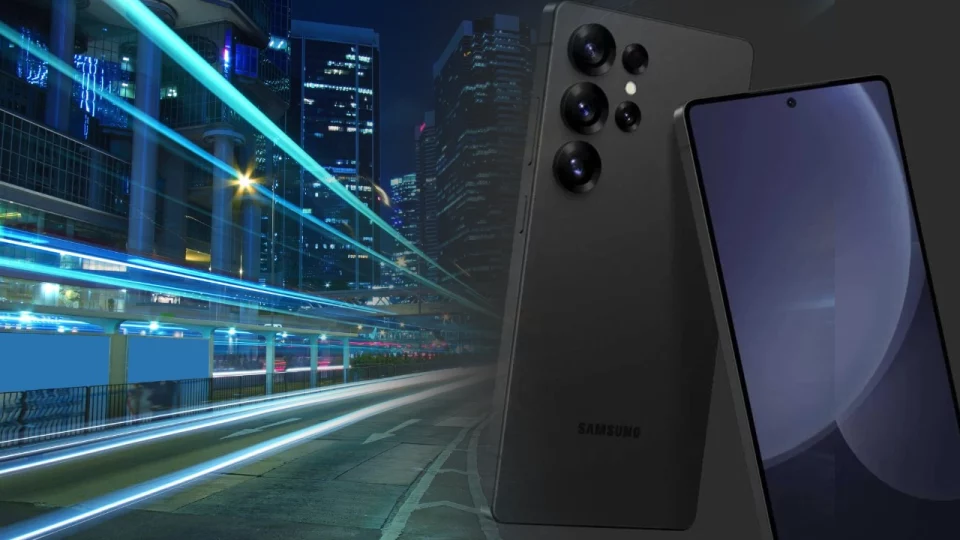Samsung is once again set to redefine smartphone performance standards with the anticipated Galaxy S25 Ultra. Building upon the success of its predecessors, this latest model is expected to debut with Qualcomm’s newest Snapdragon 8 Elite chip, marking a significant leap in power and efficiency.
Early benchmark results showcase scores that hint at a robust improvement over the Galaxy S24 Ultra, adding to the excitement of tech enthusiasts and Samsung loyalists. Here’s an in-depth look at the features, performance benchmarks, and expectations surrounding the Galaxy S25 Ultra.
Table of Contents
An Overview of Samsung’s Flagship Lineup Evolution
Samsung’s Galaxy Ultra line has consistently pushed the boundaries of smartphone capabilities, especially within the Android ecosystem. Known for premium hardware, high-resolution displays, advanced camera systems, and unmatched processing power, each Ultra model has aimed to deliver top-tier performance and features for tech-savvy users. The Galaxy S24 Ultra, launched earlier this year, received widespread acclaim for its performance and camera capabilities, setting high standards for the Galaxy S25 Ultra.
The next iteration, however, promises a leap in processing power and efficiency, made possible through Qualcomm’s newly announced Snapdragon 8 Elite chip. According to recent leaks and benchmark tests, this processor is expected to enhance both single-core and multi-core performance considerably, providing an experience superior to that of the Galaxy S24 Ultra. This expected advancement fuels anticipation for Samsung’s latest flagship, with consumers eager to see what other innovations the Galaxy S25 Ultra might offer.
Samsung Galaxy S25 Ultra’s Benchmark Scores: A Closer Look
The Samsung Galaxy S25 Ultra was recently spotted on Geekbench, the popular benchmarking platform, where it exhibited impressive performance numbers. Initial tests reveal that the device scored 3,148 points in single-core performance and 10,236 points in multi-core tests. These results are notably higher than the Galaxy S24 Ultra’s benchmark scores of 2,236 in single-core and 6,813 in multi-core tests. This difference underscores a significant performance boost for the upcoming model, indicating that the Galaxy S25 Ultra could set new standards in speed and efficiency for smartphones.
Such numbers place the Galaxy S25 Ultra well ahead of many competing devices on the market. The single-core score of 3,148 marks a notable improvement in handling individual tasks, while the 10,236 multi-core score suggests powerful multitasking capabilities that are ideal for intensive applications like gaming, video editing, and other processor-heavy tasks.
The leap in performance scores is likely attributed to the Snapdragon 8 Elite processor, which Qualcomm unveiled as the latest in its flagship series. This chipset not only improves raw processing power but also brings better energy efficiency, essential for extending battery life without compromising performance.
Snapdragon 8 Elite: The Core of Samsung’s New Powerhouse
The Snapdragon 8 Elite chip is the centerpiece of the Galaxy S25 Ultra’s anticipated performance. Qualcomm’s latest processor is engineered to deliver powerful, efficient performance through advancements in core structure and AI-based processing. Built on a more advanced manufacturing process, this chip enhances the processing speed while conserving energy, a combination highly sought after in premium smartphones.
In terms of architecture, the Snapdragon 8 Elite features advanced cores designed to tackle multiple tasks simultaneously with reduced latency, allowing users to experience faster loading times, fluid transitions, and improved responsiveness in applications. The Galaxy S25 Ultra’s benchmark performance indicates that the Snapdragon 8 Elite chip has been finely tuned for Samsung’s hardware, offering a seamless blend of power and efficiency.
Moreover, Qualcomm has integrated AI-driven enhancements within the Snapdragon 8 Elite, improving everything from app management to image processing. This boost in AI capabilities means that users can expect smoother interactions, from personalized app suggestions to optimized camera settings based on the subject and surroundings.
Hardware Upgrades: RAM, OS, and One UI 7 Integration
The benchmark entry for the Samsung Galaxy S25 Ultra confirms a 12GB RAM configuration, which should help the device handle multiple tasks with ease. This generous memory capacity ensures that the smartphone can run resource-intensive applications without stuttering, making it suitable for users who prioritize speed and efficiency.
On the software side, the Galaxy S25 Ultra will come with Android 15 out-of-the-box, alongside Samsung’s customized One UI 7 interface. This combination will offer users access to the latest Android features while retaining Samsung’s distinct interface enhancements. One UI 7 is rumored to provide a smoother user experience with new customization options, improved system animations, and enhanced multitasking features. The Android 15 and One UI 7 partnership aligns well with Samsung’s goal of providing an intuitive, feature-rich interface for users.
One UI 7 also promises integration of more AI and machine learning elements, complementing the AI capabilities of the Snapdragon 8 Elite. Together, these software and hardware advancements promise a responsive and intelligent user experience that caters to the growing demand for personalized smartphone functionalities.
Comparative Analysis: Galaxy S25 Ultra vs. Galaxy S24 Ultra
Comparing the Galaxy S25 Ultra with the Galaxy S24 Ultra highlights Samsung’s ongoing dedication to performance enhancements. While the Galaxy S24 Ultra achieved respectable benchmark scores and held a strong position in the premium smartphone market, the Galaxy S25 Ultra’s recent scores indicate a substantial performance uplift.
Specifically, the Galaxy S25 Ultra’s 3,148 single-core and 10,236 multi-core scores represent over 40% improvement in processing power compared to the Galaxy S24 Ultra. This increase could result in visibly faster response times, smoother app launches, and more robust multitasking capabilities.
This upgrade will be especially beneficial for professionals and power users who require reliable performance for demanding applications. Whether it’s streaming high-definition content, editing large media files, or switching between several open applications, the Galaxy S25 Ultra appears equipped to handle these tasks with greater efficiency than its predecessor.
